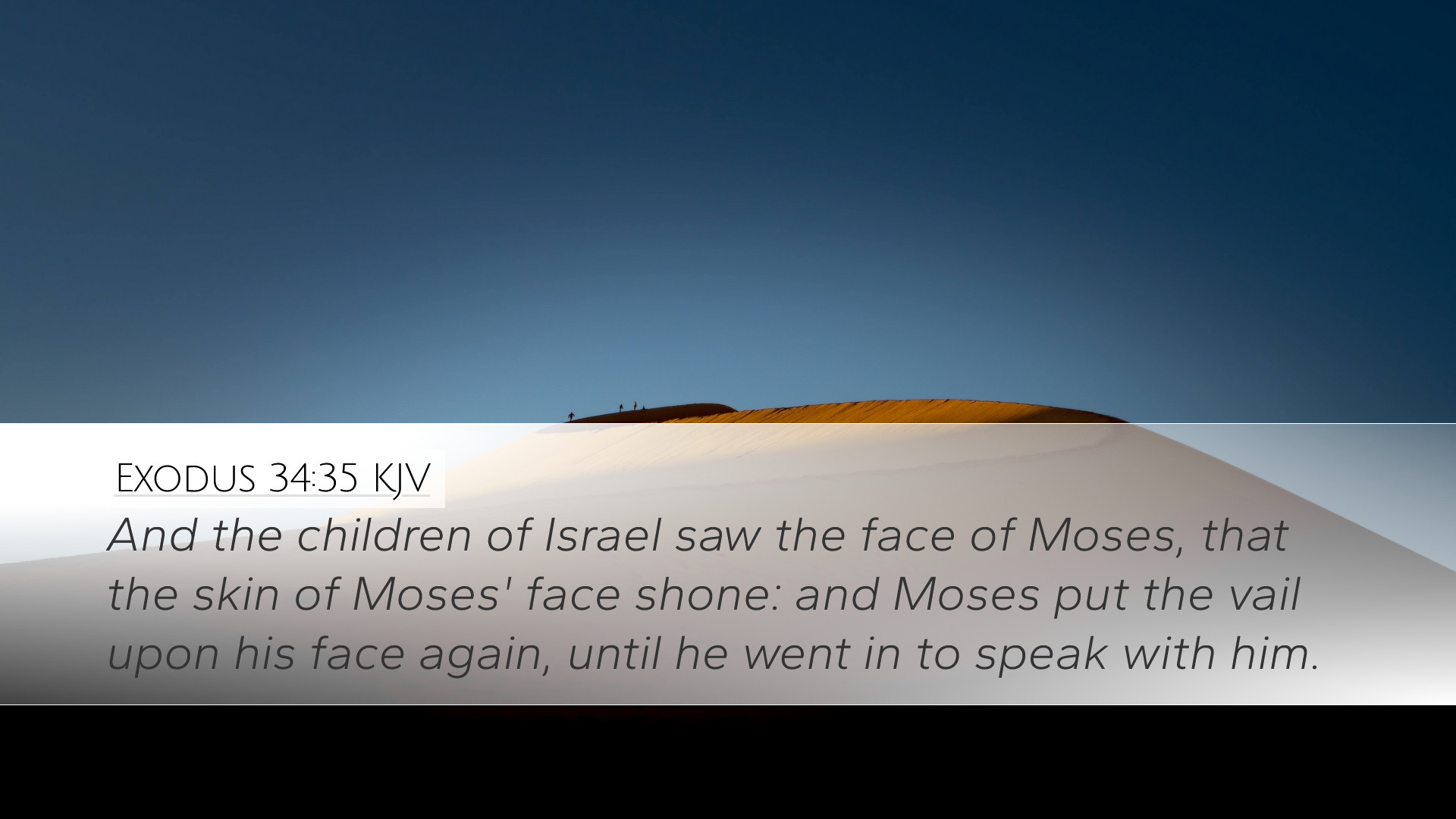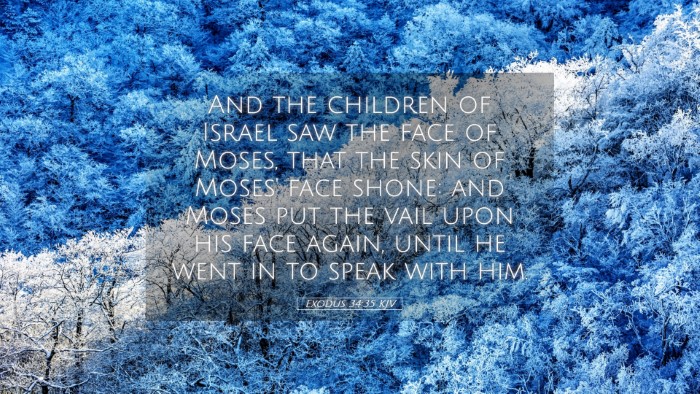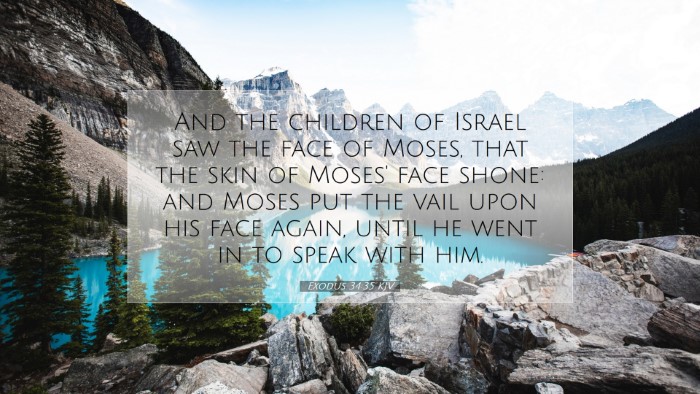Exodus 34:35 Commentary
Verse Context: Exodus 34:35 states: "And the children of Israel saw the face of Moses, that the skin of Moses' face shone; and Moses put the veil upon his face again, until he went in to speak with him." This passage follows the event of Moses receiving the law from God on Mount Sinai and emphasizes the transformative power of being in God's presence.
Introduction
The passage in Exodus 34:35 serves as a pivotal moment that highlights the consequences of divine encounters. The references to Moses' radiant face carry profound theological implications about revelation, transformation, and the nature of God's glory.
Moses and Divine Glory
Moses' face shining reflects the glory of God that he experienced while communing with Him. This intrinsic connection between God's presence and the radiance displayed by Moses emphasizes a crucial theme throughout Scripture: being in the presence of the Lord transforms the believer.
Commentary Insights
-
Matthew Henry's Commentary:
Henry emphasizes the physical manifestation of God's glory in the Old Testament, noting, "Moses had been with God and fetched his new commission; and he returns, not only with the words of the law, but with a face shining, as it were, with the glory of God." The radiance signifies not only the reception of the law but also serves as a testament to the holiness of the one who delivers it.
-
Albert Barnes' Notes:
Barnes underscores the reverence and fear of the Israelites upon seeing Moses' shining face. He remarks, "The veil was put on the face of Moses, to prevent the people from being struck with terror at his radiant appearance." This insight indicates the transformative but also intimidating nature of divine encounter, which demands appropriate reverence.
-
Adam Clarke's Commentary:
Clarke provides a detailed analysis of the veil's purpose, suggesting it was "to conceal the fleeting glory." He explains that as Moses spoke with God, his face shone brightly; however, as he returned to the people, the radiance began to fade. The veil serves as a mediator between the fading glory and the people's ability to withstand the overwhelming presence of God.
Theological Reflections
The episode of Moses and his shining visage invites deeper theological reflection. It illustrates the transformative potential of divine engagement, suggesting that true communion with God results in visible change. This concept echoes in the New Testament, where believers are called to reflect the glory of Christ.
Transformation through Presence
-
Old Testament Foundations:
God's presence is an enduring theme in the Old Testament, representing both blessing and challenge. Moses embodies this duality, where his communion brings a tangible manifestation of the divine, reminding believers of the expectation that closeness with God impacts one's being.
-
New Testament Parallels:
The New Testament draws parallels to Moses' experiences. In 2 Corinthians 3:7-18, Paul articulates that the glory of the new covenant surpasses that of the old. The reference to Moses' veiling highlights the transition from the law, marked by fading glory, to the transformative power available in Christ. Believers today are called to reflect God's glory without the veil, allowing the Spirit to transform them into His likeness.
Cultural and Pastoral Implications
This passage holds significant implications for pastoral ministry and the life of the church. Pastors and theologians are reminded of the importance of spending time in God's presence. The reflection of divine glory in the lives of believers is essential for effective ministry. The church is called to be a community where the presence of God transforms individuals, leading to a corporate manifestation of His glory.
Practical Applications
-
Encouragement for Personal Devotion:
The glowing face of Moses serves as a reminder to leaders and congregants alike to prioritize personal and communal encounters with God. Devoted times of prayer and study of the Scriptures are essential as they allow believers to bask in the light of His presence.
-
The Call to Reflect:
As Christians, there is an imperative to reflect the glory of God in our lives. This means living out the transformative work of the Holy Spirit, which speaks volumes to a watching world, demonstrating the beauty of God’s character through acts of love and service.
Conclusion
The passage in Exodus 34:35 encapsulates the weighty theme of God's glory and the transformative effect it has on humanity. Through the insights provided by various commentators, the necessity of being continually shaped by God's presence is made evident. As believers reflect on Moses' shining face, they are challenged to seek the transformative glory of God and allow it to shape their lives in deep and meaningful ways.


